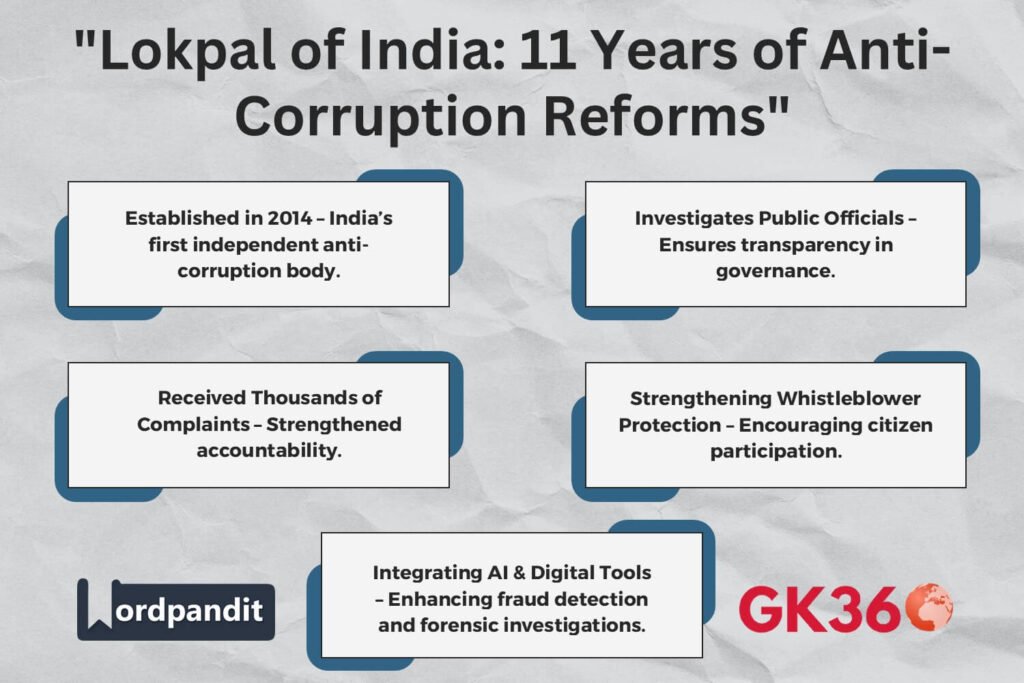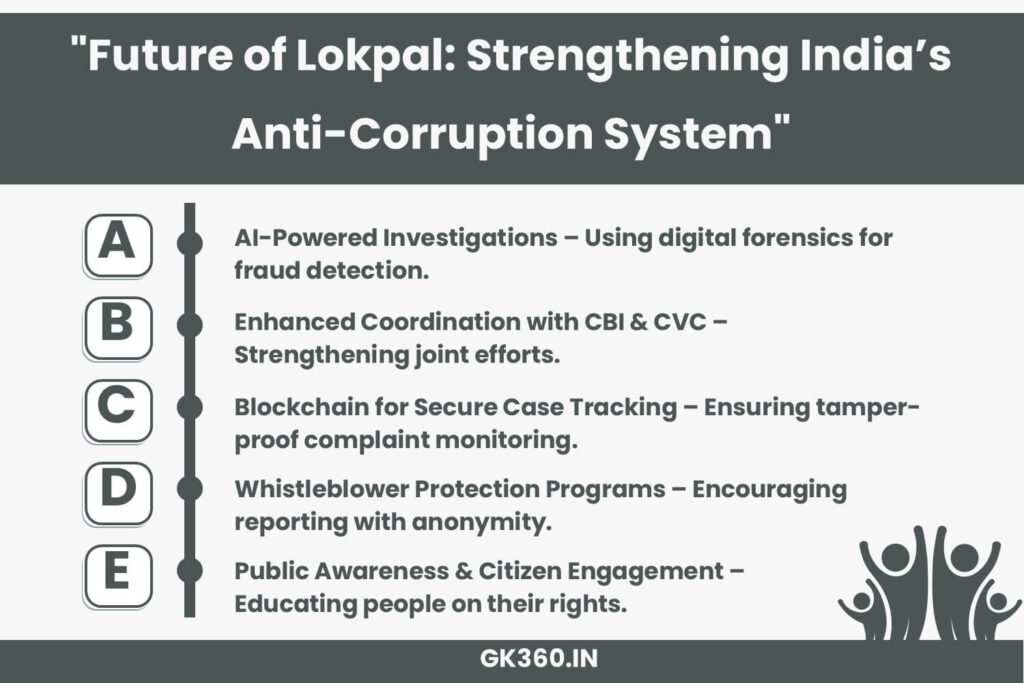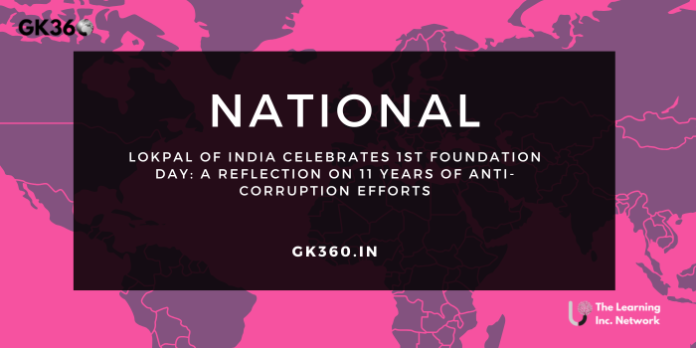Lokpal of India’s First Foundation Day: 11 Years of Anti-Corruption Reforms & Future Goals
History & Role of Lokpal in India
The Lokpal was established on January 16, 2014, following widespread demands for an independent body to investigate corruption among public officials. Since its inception, the Lokpal has received thousands of complaints and taken significant steps in ensuring transparency in governance.

Table of Contents
- History & Role of Lokpal in India
- Key Highlights of the First Foundation Day
- Future of Lokpal: Strengthening Anti-Corruption Measures
- Frequently Asked Questions (FAQs)
- Conclusion & Call-to-Action
Key Highlights of the First Foundation Day
Dignitaries in Attendance
The event witnessed the presence of several esteemed dignitaries, including:
- Chief Justice of India, Justice Sanjiv Khanna (Chief Guest)
- Justice N. Santosh Hegde, Former Supreme Court Judge & Ex-Lokayukta of Karnataka
- Anti-corruption crusader Anna Hazare (joined virtually)
- Attorney General of India, R. Venkataramani
- Senior judges, Lokayuktas from various states, and officials from CAG, CBI, and CVC
Chairperson’s Keynote Speech & Strategic Vision
Justice A.M. Khanwilkar, Chairperson of the Lokpal, emphasized the institution’s evolution and the need to remain agile in tackling corruption. He highlighted:
- Simplification of complaint registration for better public access.
- Integration of AI and forensic accounting tools for enhanced investigations.
- Strengthening partnerships with key government agencies.
Chief Justice’s Views on Public Trust
Justice Sanjiv Khanna reiterated the Lokpal’s role in upholding democratic values and public trust. He emphasized:
- The need for an independent and credible anti-corruption mechanism.
- The importance of institutional integrity in maintaining governmental transparency.
Future of Lokpal: Strengthening Anti-Corruption Measures
Integrating AI & Digital Tools for Investigations
To enhance efficiency, the Lokpal aims to integrate cutting-edge technologies, such as:
- AI-driven analytics for detecting financial fraud.
- Digital forensics for gathering crucial evidence.
- Blockchain technology for secure and tamper-proof complaint tracking.
Collaboration with CBI, CVC & Judiciary
Recognizing the importance of a unified front against corruption, the Lokpal seeks to:
- Establish a streamlined coordination system with investigative agencies.
- Conduct joint training programs for better case handling.
- Foster real-time information sharing between anti-corruption bodies.
Whistleblower Protection & Citizen Engagement
- Implement stronger protection policies for whistleblowers to encourage reporting of corruption cases.
- Launch public awareness programs to educate citizens about their rights and complaint procedures.

Frequently Asked Questions (FAQs)
1. What is the Lokpal of India?
The Lokpal is an independent anti-corruption body established under the Lokpal and Lokayuktas Act, 2013, to investigate corruption cases involving public officials.
2. What is the significance of the Lokpal’s First Foundation Day?
It marks 11 years of the institution’s efforts in ensuring transparency, accountability, and governance integrity.
3. How can a citizen file a complaint with the Lokpal?
Complaints can be filed online through the Lokpal’s official portal or in person at designated offices.
4. What are the key strategies Lokpal is adopting for the future?
The Lokpal plans to enhance its technological capabilities, collaborate with investigative agencies, and improve whistleblower protection mechanisms.
5. How does the Lokpal maintain its independence?
The Lokpal operates autonomously, with a selection committee comprising judicial and governmental authorities ensuring impartiality.
Conclusion & Call-to-Action
The celebration of Lokpal’s first Foundation Day reaffirms its commitment to fostering a corruption-free India. As it moves forward, adopting advanced technologies, strengthening collaborations, and enhancing citizen engagement will be key to its success.
Key Takeaways Table
| Aspect | Details |
|---|---|
| Foundation Year | January 16, 2014 |
| Objective | Investigate corruption cases involving public officials |
| Key Achievements | Thousands of complaints resolved, increased transparency, stronger whistleblower protection |
| Future Focus | AI-powered investigations, blockchain for case tracking, enhanced collaboration with CBI & CVC |
| Whistleblower Protection | Strengthening anonymity and security for informants |
| Public Engagement | Awareness campaigns and citizen reporting mechanisms |
Related terms
- Lokpal of India First Foundation Day 2025
- Anti-Corruption Reforms in India
- Whistleblower Protection India
- Lokpal vs CBI – Role & Powers
- Digital Forensics in Anti-Corruption Investigations
- Blockchain in Legal Investigations
- AI in Governance & Transparency
- Lokpal & Lokayuktas Act 2013 Explained
- How to File a Complaint with Lokpal
- India’s Fight Against Corruption





